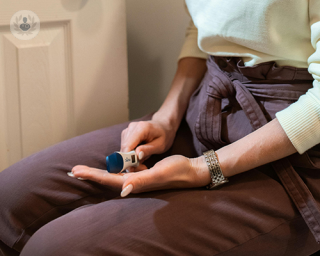
By Mrs Ritu Rana
06.11.24
Obstetrics & gynaecology
What is menopause and when does it happen?
Menopause is a natural phase in a woman’s life that marks the end of her menstrual cycles. It typically occurs between the ages of 45 and 55, although some women experience it earlier or later. Menopause is diagnosed when a woman has gone without a period for 12 consecutive months, and it signals that the ovaries have stopped releasing eggs and producing the hormones oestrogen and progesterone. These hormonal changes can lead to various physical and emotional symptoms, which can affect everyday life.


















